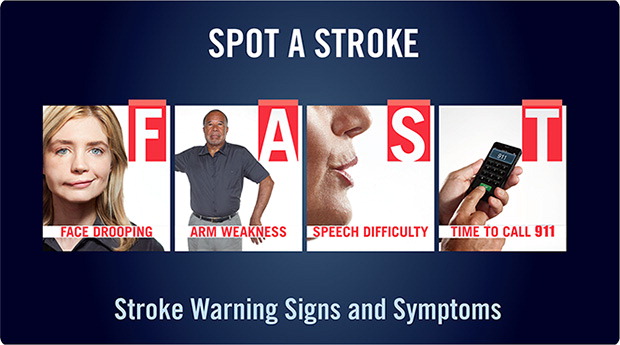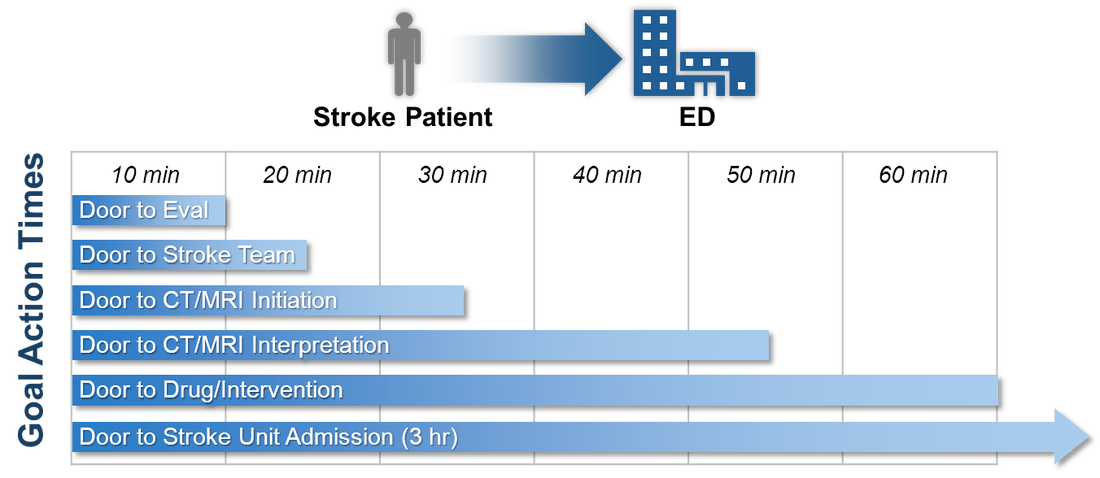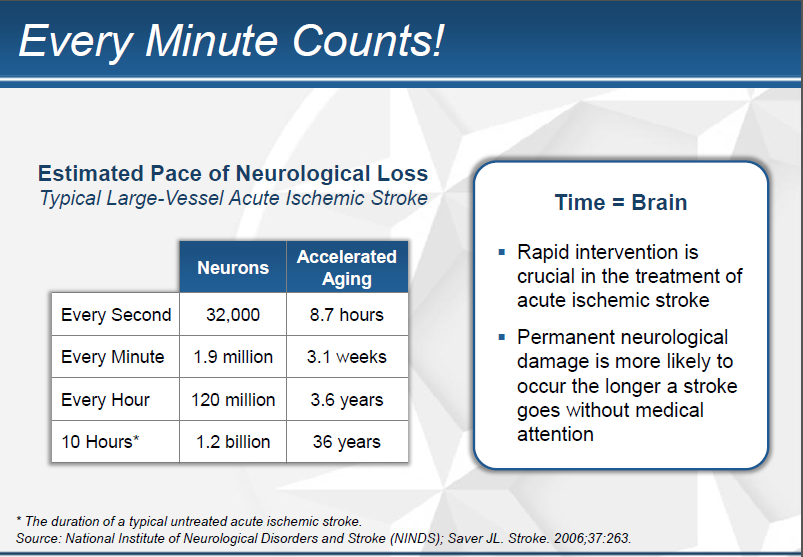Stroke Education
A stroke happens when blood flow to a part of the brain stops. A stroke is sometimes called a "brain attack." If blood flow is stopped for longer than a few seconds, the brain cannot get blood and oxygen. Brain cells can die, causing permanent damage.

Patient Resources
Stroke Activation Process
A Stroke is a medical emergency and time is of the essence to receive treatment. The earlier patients receive treatment, the better the outcome. This is why Eisenhower implemented a special code for patient's who come in with a suspected stroke. Key steps and goal times for the Code Stroke, can be seen in the graph below.
Stroke Statistics
- On average, every 40 seconds, a stroke occurs; and every 4 minutes, someone dies of a stroke
- Stroke accounts for 1 of every 18 deaths in the US, making it the #4 most common cause of death
- Stroke is the #2 most common leading cause of death in the world (11%) behind only to heart disease (13%)
- Stroke occurs more frequently in men than in women
- However, stroke has a higher mortality rate in women (60%) than in men (40%)
- Stroke surpassed breast cancer (#5), as the #2 leading cause of death of women
- Stroke is one of the leading causes of serious long-term disability and institutionalized care in the US
Source: American Heart Association, World Health Organization, Center for Disease Control and Prevention
Save B.R.A.I.N.S.
The Eisenhower Health SAVE B.R.A.I.N.S. stroke education program is now being adopted by other institutions and disseminated nationwide through the American Association of Neuroscience Nurses.
- Blood Pressure Control
- Reduce Cholesterol / Risk Factors
- Anticoagulants / Antithrombotics
- Increase Activity
- No Smoking / Drug Abuse
- Sugar Control for Diabetics
Blood Pressure Control
- Know your doctor-recommended blood pressure range
- Check your pharmacy/grocery store; they may have free blood pressure checks
- Never stop blood pressure medications without your doctor's approval
Reduce Cholesterol / Risk Factors
Control Your Diet
- Limit fats and cholesterol
- Limit salt intake
Anticoagulants / Antithrombotics
Understand and Manage Atrial Fibrillation (A-Fib)
- Understand the role of antithrombotic/anticoagulants (blood thinners)
Increase Activity
Healthy lifestyle choices can prevent future strokes.
- Lack of exercise is a factor you can control
- Consult with your doctor about what level of activity is right for you
No Smoking / Drug Abuse
Stop Smoking
- Not just for your brain
- If you need help quitting, talk to your nurse or doctor. Eisenhower Health has a program to help you stop smoking that is available to you by calling 760-773-2080
Alcohol and Drugs
- Alcohol increases your chances of getting a brain problem, including stroke and dementia
- The use of drugs, especially meth, can cause death from stroke
- If you or a loved one has experienced negative consequences from alcohol or drug use, there is support available in your community:
- Alcoholics Anonymous: 760-324-4880
- Narcotics Anonymous: 760-346-5800
- Alcohol and Drug Helpline: 800-821-4357
Sugar Control for Diabetics
- Follow your Practitioner's orders for monitoring and controlling your blood sugar






